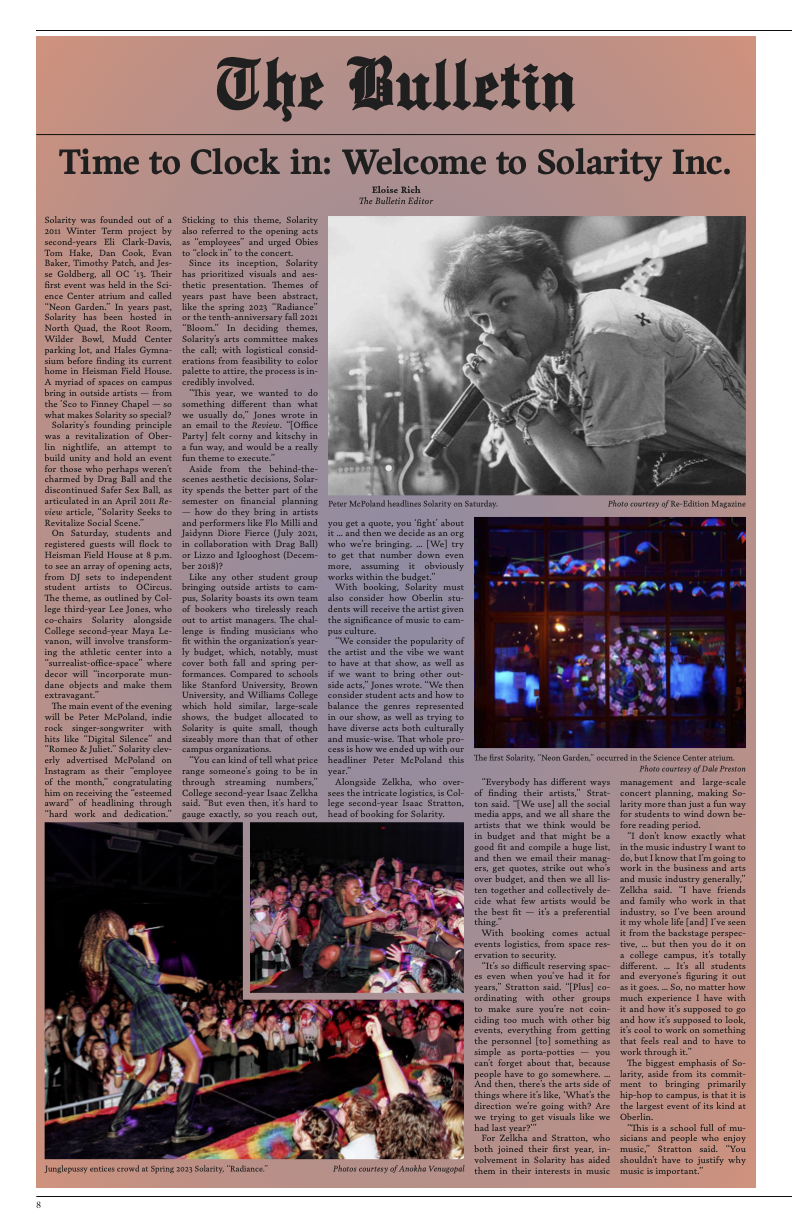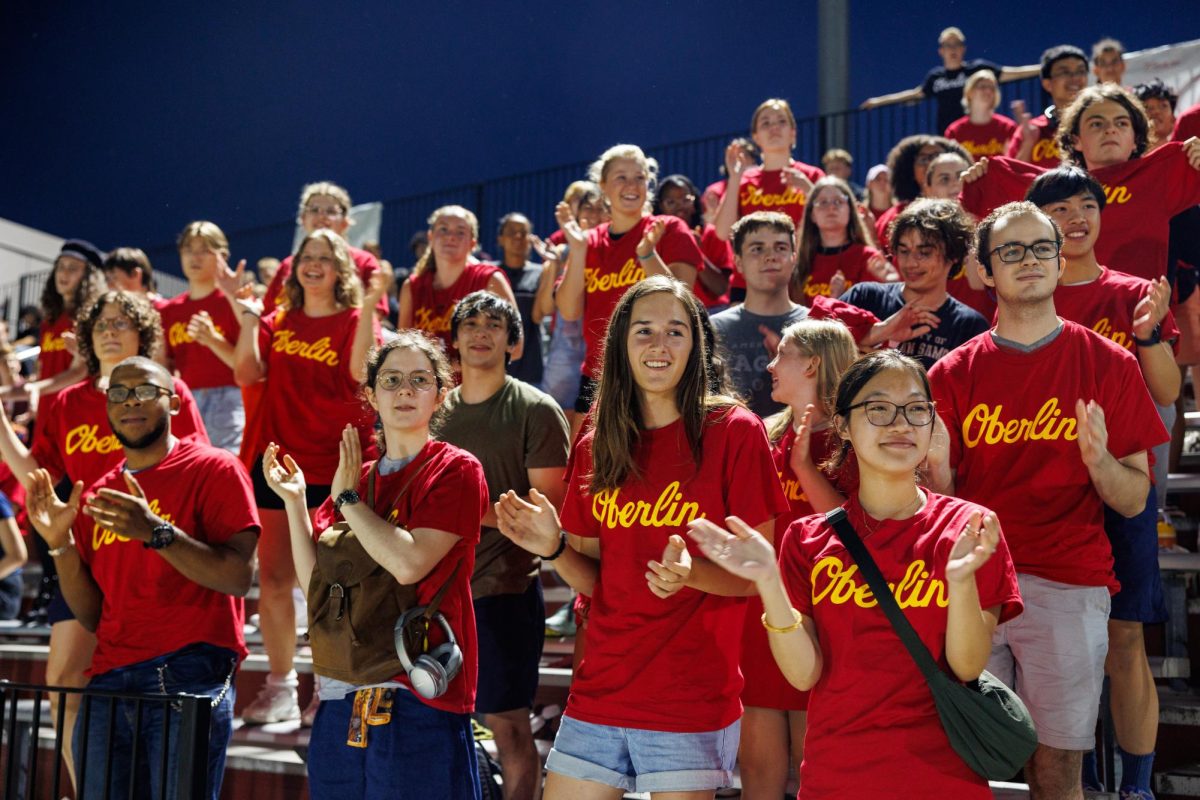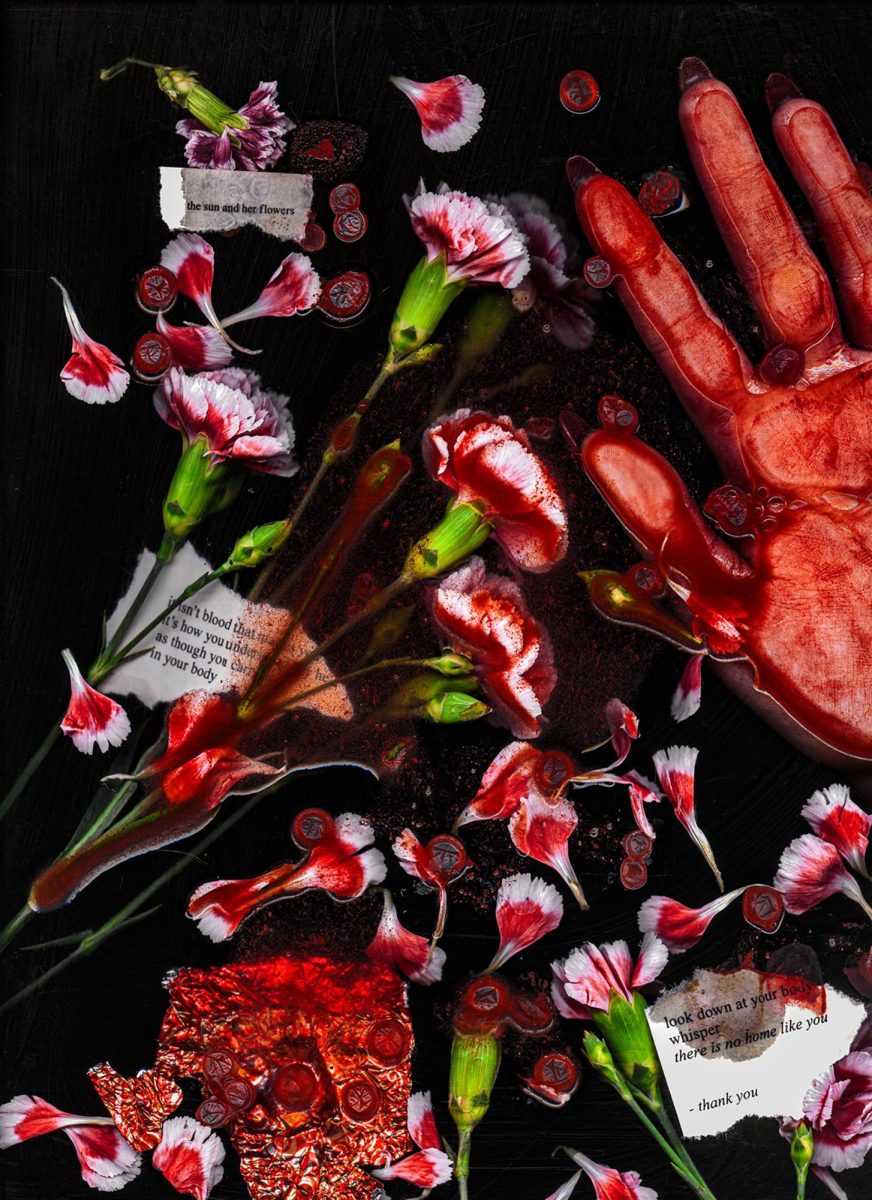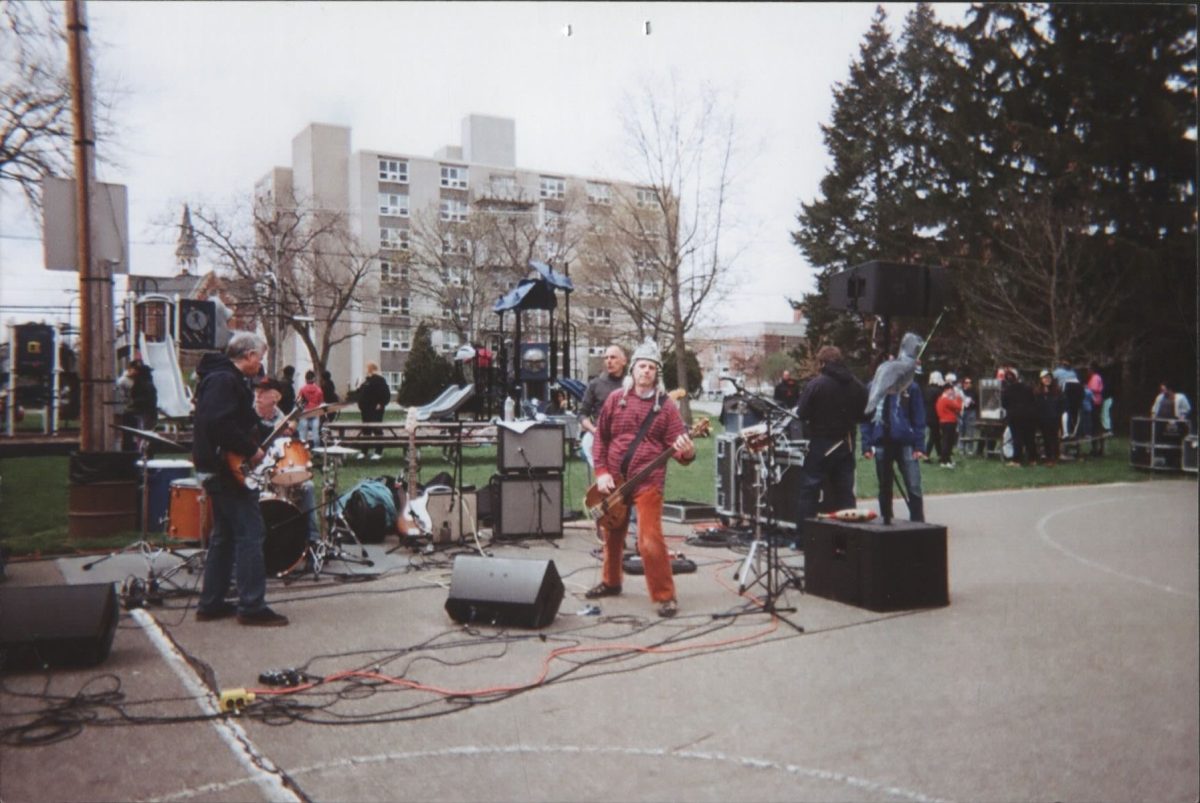Solarity was founded out of a 2011 Winter Term project by second-years Eli Clark-Davis, Tom Hake, Dan Cook, Evan Baker, Timothy Patch, and Jesse Goldberg, all OC ’13. Their first event was held in the Science Center atrium and called “Neon Garden.” In years past, Solarity has been hosted in North Quad, the Root Room, Wilder Bowl, Mudd Center parking lot, and Hales Gymnasium before finding its current home in Heisman Field House. A myriad of spaces on campus bring in outside artists — from the ’Sco to Finney Chapel — so what makes Solarity so special?
Solarity’s founding principle was a revitalization of Oberlin nightlife, an attempt to build unity and hold an event for those who perhaps weren’t charmed by Drag Ball and the discontinued Safer Sex Ball, as articulated in an April 2011 Review article, “Solarity Seeks to Revitalize Social Scene.”
On Saturday, students and registered guests will flock to Heisman Field House at 8 p.m. to see an array of opening acts, from DJ sets to independent student artists to OCircus. The theme, as outlined by College third-year Lee Jones, who co-chairs Solarity alongside College second-year Maya Levanon, will involve transforming the athletic center into a “surrealist-office-space” where decor will “incorporate mundane objects and make them extravagant.”
The main event of the evening will be Peter McPoland, indie rock singer-songwriter with hits like “Digital Silence” and “Romeo & Juliet.” Solarity cleverly advertised McPoland on Instagram as their “employee of the month,” congratulating him on receiving the “esteemed award” of headlining through “hard work and dedication.” Sticking to this theme, Solarity also referred to the opening acts as “employees” and urged Obies to “clock in” to the concert.
Since its inception, Solarity has prioritized visuals and aesthetic presentation. Themes of years past have been abstract, like the spring 2023 “Radiance” or the tenth-anniversary fall 2021 “Bloom.” In deciding themes, Solarity’s arts committee makes the call; with logistical considerations from feasibility to color palette to attire, the process is incredibly involved.
“This year, we wanted to do something different than what we usually do,” Jones wrote in an email to the Review. “[Office Party] felt corny and kitschy in a fun way, and would be a really fun theme to execute.”
Aside from the behind-thescenes aesthetic decisions, Solarity spends the better part of the semester on financial planning — how do they bring in artists and performers like Flo Milli and Jaidynn Diore Fierce (July 2021, in collaboration with Drag Ball) or Lizzo and Iglooghost (December 2018)?
Like any other student group bringing outside artists to campus, Solarity boasts its own team of bookers who tirelessly reach out to artist managers. The challenge is finding musicians who fit within the organization’s yearly budget, which, notably, must cover both fall and spring performances. Compared to schools like Stanford University, Brown University, and Williams College which hold similar, large-scale shows, the budget allocated to Solarity is quite small, though sizeably more than that of other campus organizations.
“You can kind of tell what price range someone’s going to be in through streaming numbers,” College second-year Isaac Zelkha said. “But even then, it’s hard to gauge exactly, so you reach out, you get a quote, you ‘fight’ about it … and then we decide as an org who we’re bringing. … [We] try to get that number down even more, assuming it obviously works within the budget.”
With booking, Solarity must also consider how Oberlin students will receive the artist given the significance of music to campus culture.
“We consider the popularity of the artist and the vibe we want to have at that show, as well as if we want to bring other outside acts,” Jones wrote. “We then consider student acts and how to balance the genres represented in our show, as well as trying to have diverse acts both culturally and music-wise. That whole process is how we ended up with our headliner Peter McPoland this year.”
Alongside Zelkha, who oversees the intricate logistics, is College second-year Isaac Stratton, head of booking for Solarity.
“Everybody has different ways of finding their artists,” Stratton said. “[We use] all the social media apps, and we all share the artists that we think would be in budget and that might be a good fit and compile a huge list, and then we email their managers, get quotes, strike out who’s over budget, and then we all listen together and collectively decide what few artists would be the best fit — it’s a preferential thing.”
With booking comes actual events logistics, from space reservation to security.
“It’s so difficult reserving spaces even when you’ve had it for years,” Stratton said. “[Plus] coordinating with other groups to make sure you’re not coinciding too much with other big events, everything from getting the personnel [to] something as simple as porta-potties — you can’t forget about that, because people have to go somewhere. … And then, there’s the arts side of things where it’s like, ‘What’s the direction we’re going with? Are we trying to get visuals like we had last year?’”
For Zelkha and Stratton, who both joined their first year, involvement in Solarity has aided them in their interests in music management and large-scale concert planning, making Solarity more than just a fun way for students to wind down before reading period.
“I don’t know exactly what in the music industry I want to do, but I know that I’m going to work in the business and arts and music industry generally,” Zelkha said. “I have friends and family who work in that industry, so I’ve been around it my whole life [and] I’ve seen it from the backstage perspective, … but then you do it on a college campus, it’s totally different. … It’s all students and everyone’s figuring it out as it goes. … So, no matter how much experience I have with it and how it’s supposed to go and how it’s supposed to look, it’s cool to work on something that feels real and to have to work through it.”
The biggest emphasis of Solarity, aside from its commitment to bringing primarily hip-hop to campus, is that it is the largest event of its kind at Oberlin.
“This is a school full of musicians and people who enjoy music,” Stratton said. “You shouldn’t have to justify why music is important.”








